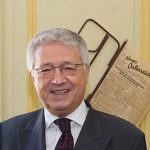Talks and debate in connection with the conference entitled “Wendepunkte. Friedensende und Friedensanfang vom Dreißigjährigen Krieg bis zur Gegenwart“ (Turning points: The end of peace and the start of peace from the Thirty Years’ War to the present), featuring
Moderator
Professor Dr. Ulrich Schneckener, Osnabrück University
Almost every day there are reports from war zones in Europe’s neighborhood. Less attention is given to the possibilities and limitations of peace and mediation processes. In commemoration of the 370th anniversary of the Peace of Westphalia, proclaimed in Osnabrück and Münster, this Peace Forum is dedicated to the topic of “Making peace”: How can wars, and especially civil wars, be stopped? What are the turning points and paths that lead to peace? How can peace processes succeed? What role is played by external, international actors in the process? These questions were discussed among three experts from the fields of political practice and peace research. Based on their firsthand experience from a number of conflicts (e.g. the Western Balkans, Afghanistan, the Middle East), they talked about the approaches and challenges involved in international peacebuilding.
Wolfgang Petritsch is an Austrian diplomat, politician, and foreign policy expert specializing in Southeast Europe – born in 1947, serving as High Representative to Bosnia and Herzegovina from 1999 to 2002 and Ambassador to the United Nations in Geneva from 2002 to 2008. He studied German Studies, History, and Political Science, and obtained a PhD in Vienna in 1972. He was awarded the European Human Rights Prize at the European Court of Human Rights in 2007. He has been teaching International Politics at Harvard University, USA, since 2013, and is currently President of the Austrian Marshall Plan Foundation.
Markus Potzel is a German diplomat and the Special Representative of the Federal Government for Afghanistan and Pakistan, Director General for South Asia – born in 1965, he was Ambassador to Afghanistan from 2014 to 2016 and served as Crisis Management Commissioner at the Federal Foreign Office from 2016 to 2017. He was a visiting researcher at the German Institute for International and Security Affairs (SWP) in Berlin in 2010, where he engaged in studies on relations between Iran and Afghanistan and published a book entitled “Iran und der Westen: Chancen für gemeinsames Handeln in Afghanistan?” (Iran and the West: Opportunities for joint action in Afghanistan?). He was Head of the Middle East Department at the Federal Foreign Office from 2010 to 2014.
Dana Landau is a political scientist and peace researcher – born in 1985, studied at King’s College London and did her PhD at the University of Oxford in 2017, focusing on Kosovo, minority rights, and the role of international organizations in the nation-building process after the 1999 war. She worked in Pristina, Kosovo, for the Swiss Agency for Development and Cooperation in 2009 and for the United Nations Development Programme (UNDP) in 2012. She also conducted applied comparative research on peace processes for the Inclusive Peace & Transition Initiative at the Graduate Institute of International and Development Studies in Geneva from 2016 to 2018.
October 25, 2018, 7 pm, University Auditorium, Neuer Graben 29 / Schloss
Picture gallery
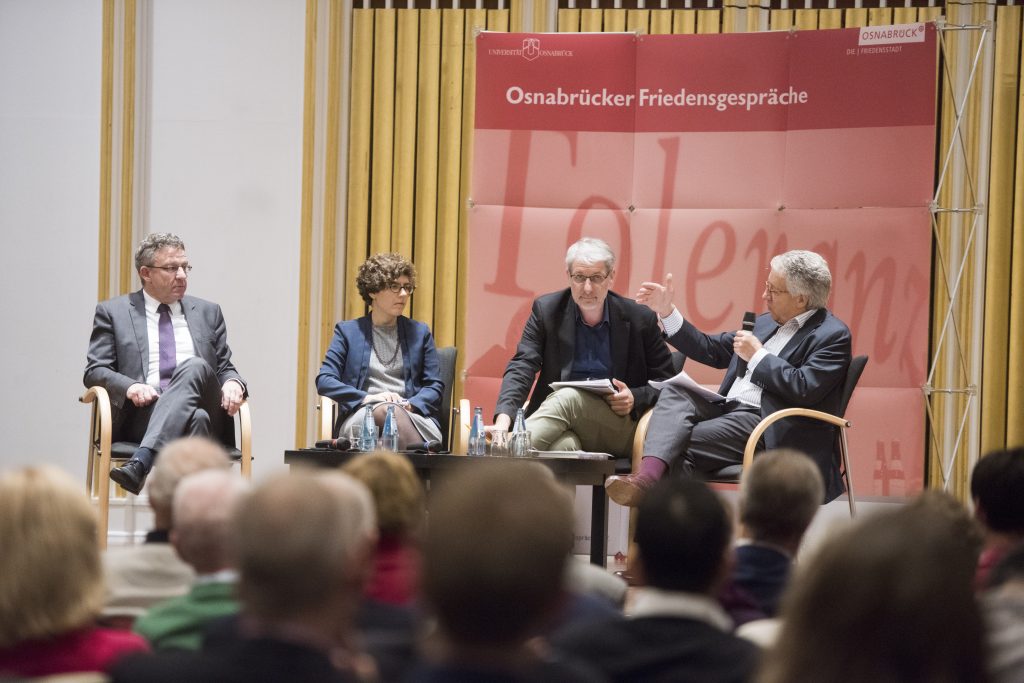
das Podium, © Osnabrücker Friedensgespräche | Uwe Lewandowski 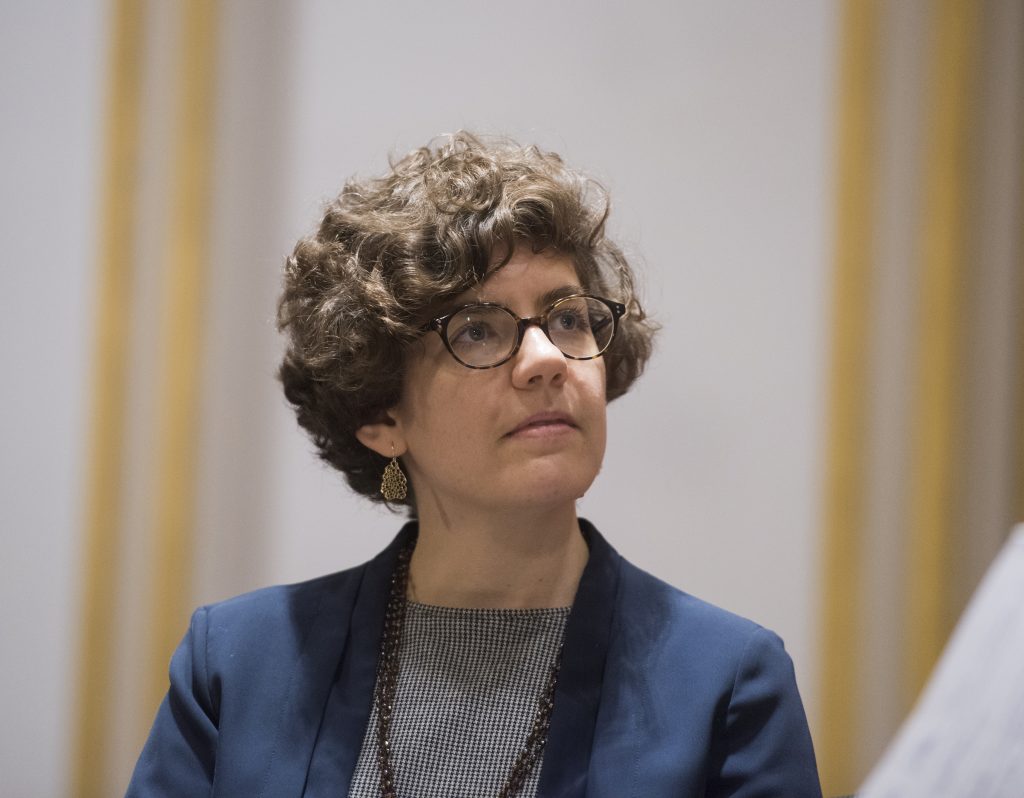
Dr. Dana Landau, © Osnabrücker Friedensgespräche | Uwe Lewandowski 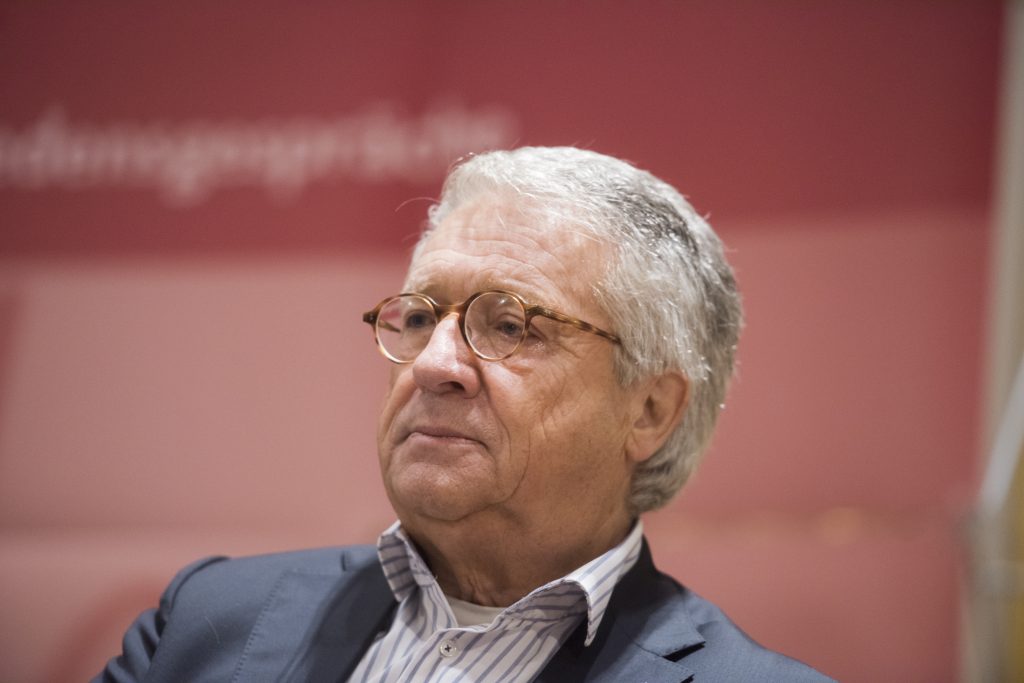
Wolfgang Petritsch, © Osnabrücker Friedensgespräche | Uwe Lewandowski 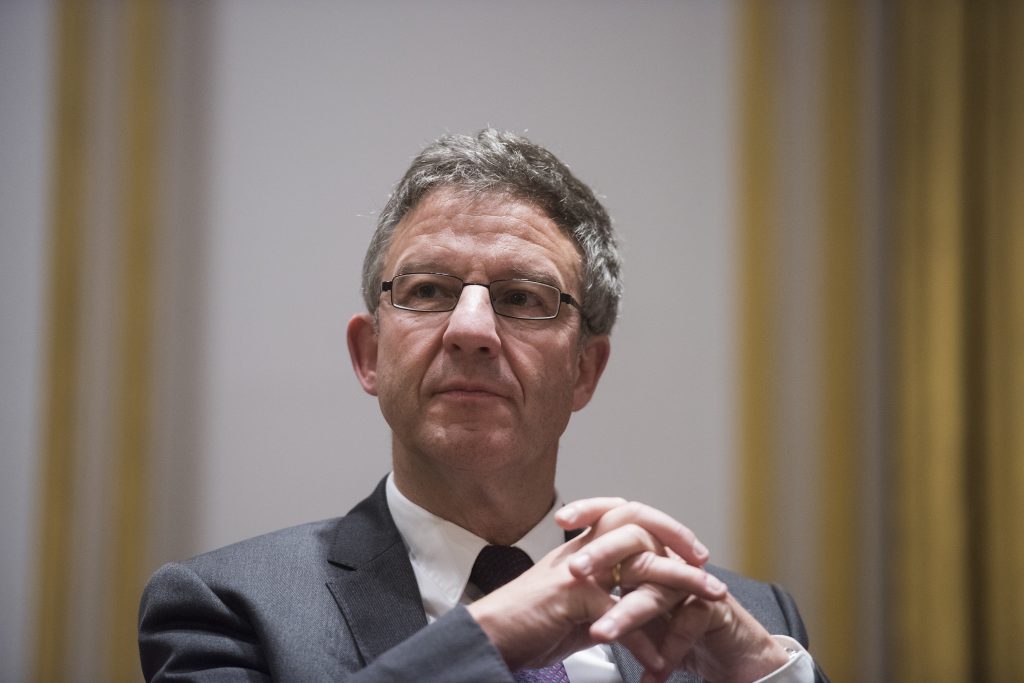
Markus Potzel, © Osnabrücker Friedensgespräche | Uwe Lewandowski 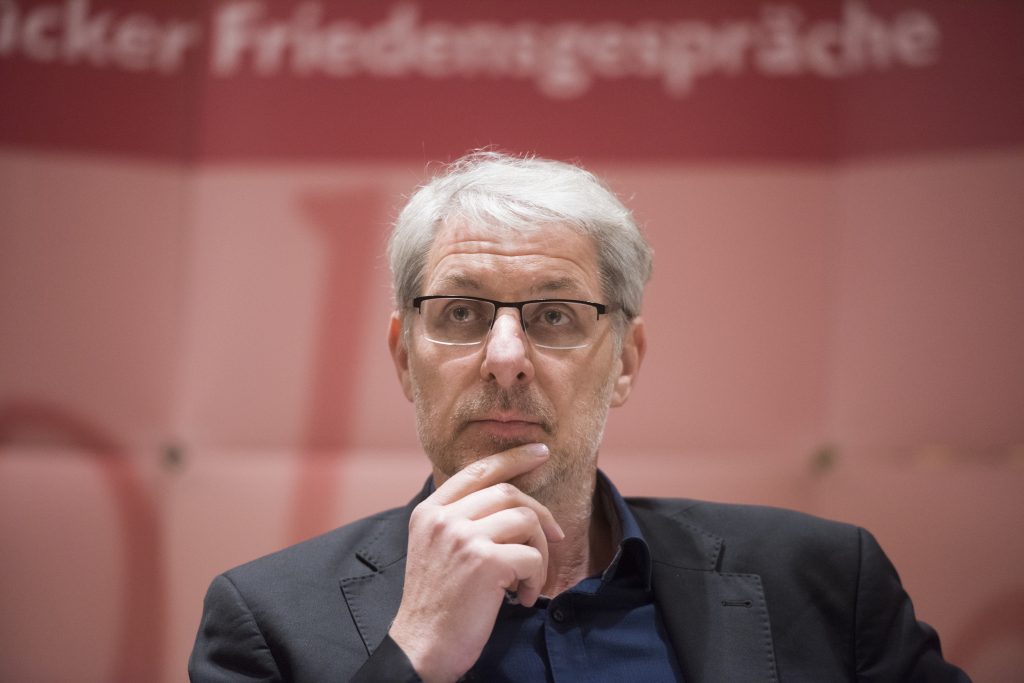
Prof. Dr. Ulrich Schneckener, © Osnabrücker Friedensgespräche | Uwe Lewandowski 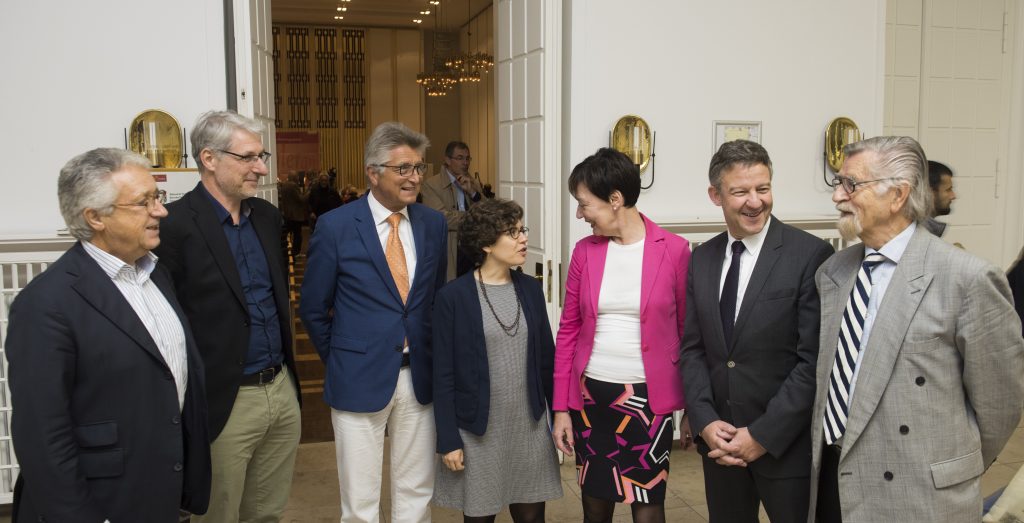
Gruppenfoto vor der Schlossaula, © Osnabrücker Friedensgespräche | Uwe Lewandowski
© Osnabrücker Friedensgespräche | Uwe Lewandowski


